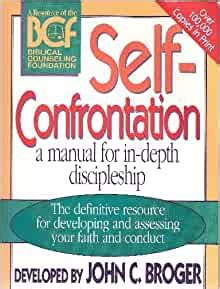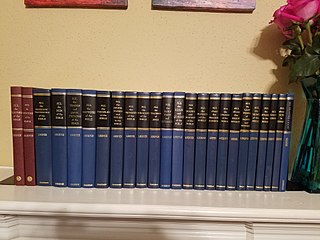A Quote by Max Lucado
I don't like hassles. But I love Christmas because it reminds us how "God causes everything to work together for the good of those who love God" (Rom. 8:28 NLT).
Related Quotes
Howbeit your faith seeth but the black side of providence, yet it hath a better side, and God shall let you see it. ... “For we know that all things work together for good to them that love God,” ergo, shipwreck, losses, &c., work together for the good of them that love God: hence I infer, that losses, disappointments, ill tongues, loss of friends, houses, or country, are God's workmen, set on work to work out good to you, out of everything that befalleth you.
God never allows pain without a purpose in the lives of His children. He never allows Satan, nor circumstances, nor any ill-intending person to afflict us unless He uses that affliction for our good. God never wastes pain. He always causes it to work together for our ultimate good, the good of conforming us more to the likeness of His Son (see Romans 8:28-29).
Love is the all-or-nothing of the kingdom of God. Above all we are to love (Col. 3:14; 1 Peter 4:8). Everything we do is to be done in love and, thus, communicate love (1 Cor. 16:14). We are to imitate God by living in Christlike love (Eph. 5:1–2), and if we do this, we fulfill the whole law (Matt. 22:37–40; Rom. 13:8–10). If we lack this, everything else we do is devoid of kingdom value, however impressive it might otherwise be (1 Cor. 13:1–3).
"God is love". His is not a sentimental, emotional kind of love but the love of the Father who is the origin of all life, the love of the Son who dies on the Cross and is raised, the love of the Spirit who renews human beings and the world. Thinking that God is love does us so much good, because it teaches us to love, to give ourselves to others as Jesus gave himself to us and walks with us. Jesus walks beside us on the road through life.
There are two gods. The god our teachers teach us about, and the God who teaches us. The god about whom people usually talk, and the God who talks to us. The god we learn to fear, and the God who speaks to us of mercy. The god who is somewhere up on high, and the God who is here in our daily lives. The god who demands punishment, and the God who forgives us our trespasses. The god who threatens us with the torments of Hell, and the God who shows us the true path.
There are two gods. A god who casts us off because of our sins, and a God who calls to us with His love.
God’s love sets us free from the need to seek approval. Knowing that we are loved by God, accepted by God, approved by God, and that we are new creations in Christ empowers us to reject self-rejection and embrace a healthy self-love. Being secure in God’s love for us, our love for Him, and our love for ourselves, prepares us to fulfill the second greatest commandment: To love our neighbor as ourselves.
God notices you. The fact is he can't take his eyes off of you. However badly you think of yourself, God is crazy about you. God is in love with you. Some of us even fear that someday we'll do something so bad that he won't notice us anymore. Well, let me tell you, God loves you completely. And he knew us at our worst before he ever began to love us at all. And in the love of God there are no degrees, there is only love.




































